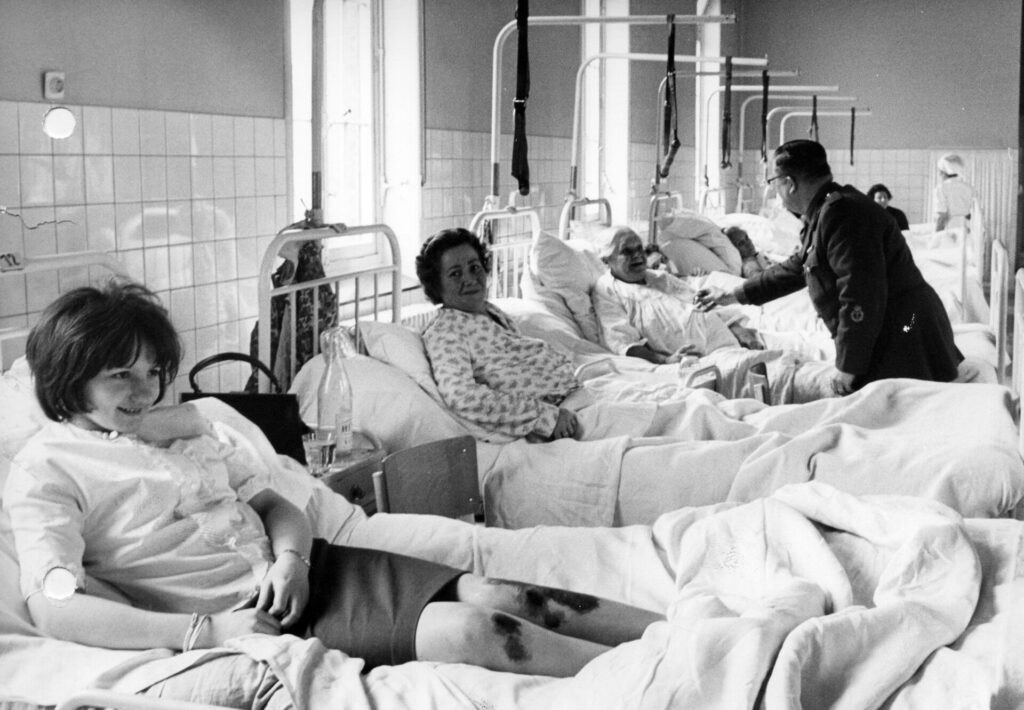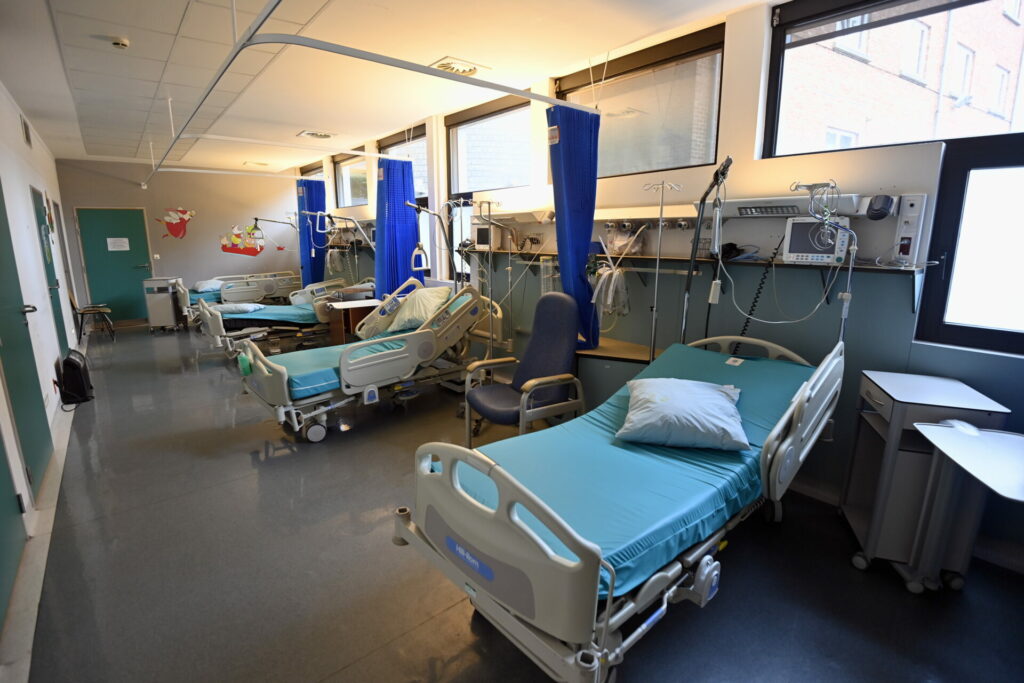The combination of financial and staffing complications is putting Belgian hospitals in an increasingly precarious position. An annual study carried out by Belgian bank Belfius found that the sector now lacks around 4,690 full-time jobs.
Worryingly, this number has risen 36% since before the pandemic. Belfius warns that staffing issues are becoming “a real headache for hospitals.” To cope with the shortage they are increasingly relying on temporary staff which has risen 75% since 2019.
Staff absence is also growing, reaching 10% last year including 6.1% for long-term absences. This is far above the Belgian average rate of absenteeism: 6.13% across all sectors.
Some companies are using illegal practices to bring in nursing staff, usually from developing countries. Contractors providing staff to hospitals were found to have forged medical certificates and used illegal contracts that include invalid work contracts.

Patients at Brussels military hospital in 1964, when a shortage of medical staff saw the army step in. BELGA PHOTO ARCHIVES
Belgian hospitals have still not fully recovered from the Covid-19 pandemic, which drove many staff away from the profession and reduced the availability of beds. The pandemic forced hospitals to massively reduce their capacity for non-urgent patients, with non-Covid-19 admissions falling by 18.2%.
“Two years later, activity has still not completely returned to its pre-Covid levels,” writes the Belfius report. Overnight admissions were still down 9.3% in 2021 and 8.6% in the first six months of this year, compared to pre-pandemic levels.
Bed occupancy also dropped from 72.1% in 2019 to 64.7% last year. Those admitted to hospitals are spending less time there – on average 5.1 days compared to 5.3 days before the pandemic. But one-day hospitalisations are rising rapidly.
Financial uncertainty
Staffing shortages, fewer admissions, and an uncertain economic outlook have inevitably had a significant impact on the finances of many hospitals.
While turnover has increased, rising 9.8% compared to before the pandemic, so too have expenses, which rose by 10%. Increased turnover is a welcome development, but is overshadowed in the context of hospital expenditure.
Belfius says that Belgian hospitals are now in even greater financial difficulty, despite being propped up with €129 million in Federal aid. Without this, the sector would have run up a deficit of around €2 million.
Related News
- Number of Covid-19 patients in hospital drops below 800
- Less than 1% of businesses left Brussels in past decade, says survey
The study concludes that this is set to be an even more complicated year for hospitals due to inflation, increased labour costs, and energy prices. The financial condition of hospitals last year was generally positive the need for new investment is clear.
“State and federal bodies have already played a very important role as a financial shock absorber during the pandemic. The room for new interventions will undoubtedly be very limited,” the report warned.

